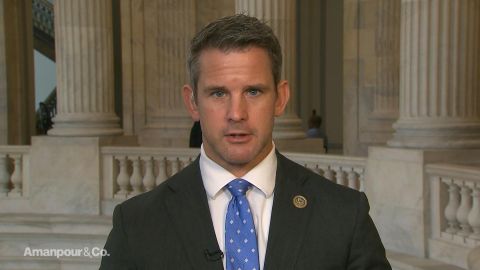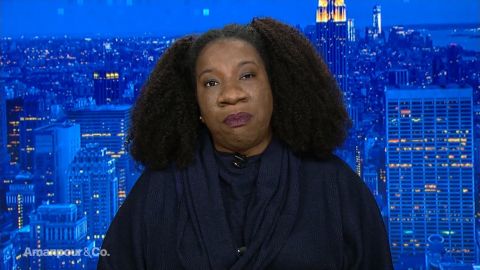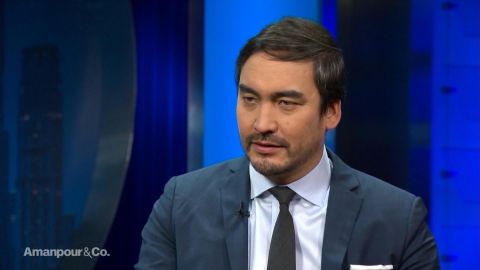Read Transcript EXPAND
CHRISTIANE AMANPOUR: So, on this particular issue, with all its ramifications and multiple layers, how do you perceive this series, “Surviving R. Kelly,” you know, perhaps being a game changer in bringing to account somebody who’s had so many accusations leveled against him?
TARANA BURKE: Well, what the documentary has done has brought into the mainstream what we’ve been talking about on social media, in our private lives, in various journalistic efforts for the last two decades and it’s finally brought to light these allegations all in a consolidated way so people can see them. And I think that the reaction is that people are appalled and surprised that there hasn’t been more attention paid to these women who have come forward over the years to talk about these allegations. And so, now, we’re starting to see a shift in the conversation and we starting to see people talking about accountability both from R. Kelly and from the people that support him.
AMANPOUR: So, let’s just put out a few of the issues, a few of the accusations. For instance, you know, he once called himself the Pied Piper of R&B. Obviously, Pied Piper is kind of a fictional character who lures children with his music. He told his protege, Aaliyah’s first album, “Age Ain’t Nothing But A Number,” and apparently tried marrying her when she was 15 years old and, at the time, 12 years his junior. How, did that sort of — how was that allowed to happen? And here are plenty of other allegations that one writer has said indicts not just him but the society around him, this society at large that allowed it to continue in plain sight.
BURKE: Well, it’s allowed to happen because people, again, are more invested in a bottom line and more invested in money and fame and proximity to fame than they are people’s lives and the lives of Black women and girls. And so, the 100 percent of the of the women and girls who are accusing R. Kelly are Black and Latino. And we have seen, historically, there are claims, particular on sexual violence or physical violence, are often falling on deaf ears. So, I think it’s multi-layered but the main reasons why I was allowed to happen is that, particularly at the time when — you know, around Aaliyah, in the 90s, in early art (ph), this is somebody who was a very successful R&B singer, who brought in a lot of money for his record label, who was beloved in the community and who was abusing a group of people who generally get left behind.
AMANPOUR: So, he’s obviously strongly denied it and he has settled many many of the accusations against him over the last few years. Now, we understand that since the series, law enforcement in — both in — I think in Chicago and also in Georgia —
BURKE: Atlanta.
AMANPOUR: Yes. And Atlanta, they’re looking into it and they’re asking more and more people to come forward and give them any evidence, if they intend to pursue a case.



